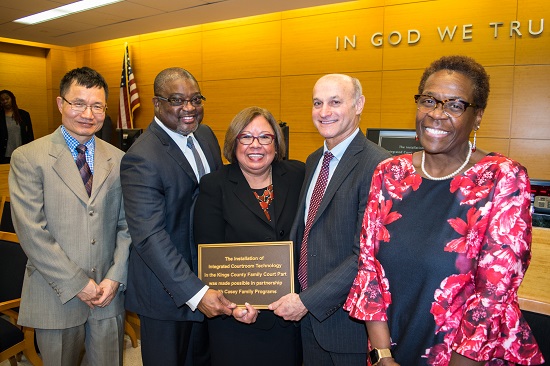Brooklyn Family Court unveils new high-tech courtroom

Brooklyn’s Family Court unveiled a new state-of-the-art courtroom on Tuesday that incorporates technology in order to improve the court’s productivity and improve justice to children and their families by making it more efficient.
The courtroom is referred to as the Kings County Integrated Courtroom Technology (ICT) Part and it features cameras, screens and audio equipment setup for video conferencing and remote court interpreting. Evidence can also be shared remotely. Wi-Fi will now all be available in all of NYC’s Family Courts.
“Today is yet one more example of NYC Family Courts standing as one of the most innovative courts in our state and in the nation,” said Chief Administrative Judge Lawrence K. Marks. “Family Court is our first paperless court in the state and is probably the largest paperless court in the country. What an achievement that was and now the court will further benefit from this cutting-edge technology.”

Brooklyn Boro
View MoreNew York City’s most populous borough, Brooklyn, is home to nearly 2.6 million residents. If Brooklyn were an independent city it would be the fourth largest city in the United States. While Brooklyn has become the epitome of ‘cool and hip’ in recent years, for those that were born here, raised families here and improved communities over the years, Brooklyn has never been ‘uncool’.